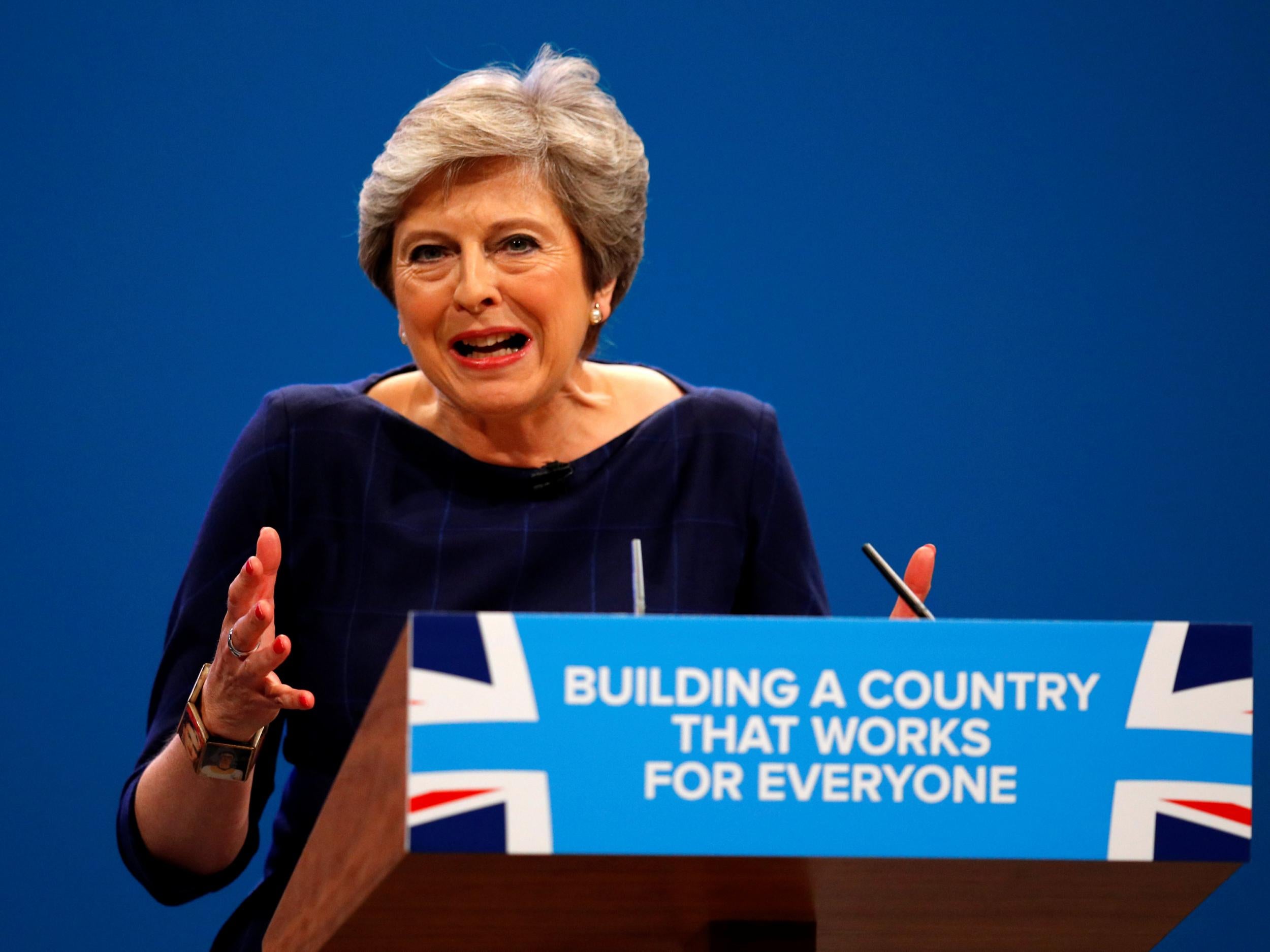Theresa May wipes billions of pounds from energy industry shares after price cap announcement
The Prime Minister promised to ‘bring an end to rip-off energy prices once and for all’

The UK’s Big Six gas and electricity suppliers saw billions wiped off their stockmarket valuations after Theresa May outlined plans to go ahead with a cap on energy prices.
Shares in British Gas owner Centrica ended the day down more than 6 per cent on Wednesday. SSE fell 3.2 per cent and EON slipped 2.7 per cent. EDF closed the day down 1.1 per cent after the Prime Minister’s announcement while Npower owner, RWE, saw shares fall almost 1 per cent.
Next week, the Tories will publish a draft bill on a price cap for consumers in order to “bring an end to rip-off energy prices once and for all”, the Prime Minister told her party's conference on Wednesday. The announcement will be seen as another U-turn by Ms May after she had apparently dropped a manifesto promise to implement a cap shortly after the election in May.
“We will always take on monopolies and vested interests when they are holding people back,” Ms May said on Wednesday.
“One of the greatest examples in Britain today is the broken energy market.
“The energy market punishes loyalty with higher prices and the most loyal customers are often those with lower incomes, the elderly, people with lower qualifications and people who rent their homes.
“Those who, for whatever reason, are unable to find the time to shop around.
“That's why next week this Government will publish a draft bill to put a price cap on energy bills, meeting our manifesto promise and bringing an end to rip-off energy prices once and for all.”
The form any price cap will take is unknown but the Prime Minister's comments suggest it is likely to target standard variable tariffs, which millions of households are moved onto by default, after their previous deals come to an end.
These are often more expensive than the tariffs they replace and many consumers may be unaware that their deal has changed.
The Prime Minister had previously handed over responsibility for looking at how to implement any price cap to energy regulator Ofgem.
The watchdog came back with a plan that would only extend the existing cap on pre-payment meter prices to 2 million more consumers.
A cap on all SVTs would be far more extensive, applying to around 12 million people.
Consumer groups and some Tory MPs, who had been pushing Ms May to crack down on energy companies, welcomed the move.
“It’s a national disgrace that a struggling 90-year-old granny pays substantially more to boil a kettle than an affluent web-savvy man like me,” said Martin Lewis, founder of Moneysavingexpert.com.
“However, a price cap done wrong can do more harm than good. Some in the Tories have called for a ‘relative’ price cap – which means a firm's most expensive price can only be a set percentage more than the cheapest. That’s self-defeating – it means they’ll just withdraw cheap deals.”
Citizens Advice chief executive Gillian Guy said a cap “could provide a solution to the runaway energy costs that the millions of people on default tariffs have faced for years”.
Tory MP John Penrose said that the Prime Minister was “absolutely right to protect households from rip-off energy bills with an energy price cap if Ofgem are too spineless to act”.
“She'll have plenty of support, with more than 200 cross-party MPs and most of the 'challenger' energy firms supporting a relative price cap,” he said.
Business news: In pictures
Show all 13Business groups criticised the policy, with CBI director general Carolyn Fairbairn labelling it “an example of state intervention that misses the mark”.
“Suppliers are already acting, providing support to those on pre-payment meters, and continued action to phase out standard variable tariffs would benefit a wide range of consumers, including those on the lowest incomes,” she said.
British Chambers of Commerce director general Adam Marshall said businesses would be “confused by the Prime Minister's commitment to free markets, on the one hand, and her stated intention to intervene in the energy market on the other”.
He warned of unintended consequences which could end up driving up prices for consumers.
Lawrence Slade, chief executive of the trade association Energy UK, said that a cap would “halt the growth of competition in the market”.
Subscribe to Independent Premium to bookmark this article
Want to bookmark your favourite articles and stories to read or reference later? Start your Independent Premium subscription today.

Join our commenting forum
Join thought-provoking conversations, follow other Independent readers and see their replies